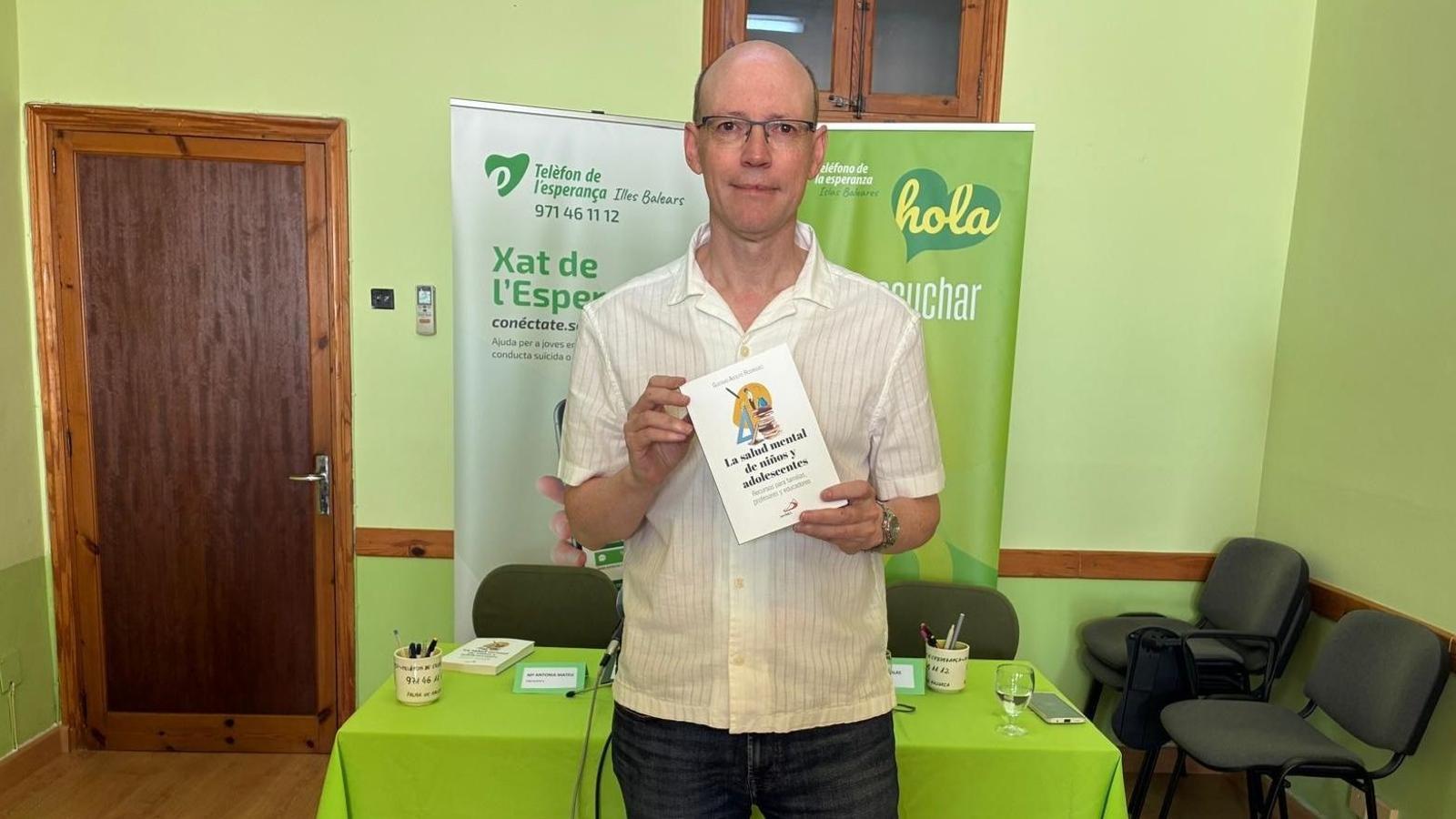One in three minors self-harm and 20% have suicidal thoughts.
Psychologist Gustavo Rodríguez presents a book on the problems of children and adolescents.

PalmOne in three minors regularly self-harm and 20% have suicidal thoughts, according to psychologist Gustavo Rodríguez during the presentation of his book. The mental health of children and adolescents, in which she warned of the "rapid and powerful deterioration" that this situation represents in today's society, especially after the pandemic. The book consists of three parts. The first addresses the main mental health problems currently affecting children and adolescents. The second provides the various causes that lead to them. Finally, the third part is dedicated to providing urgent resources to resolve them.
According to Rodríguez, the main mental health problems faced by children and adolescents are anxiety and depression. In addition, two other important disorders are on the rise: attention deficit disorder in boys, and eating disorders in girls.
Of the more than eight million children and adolescents enrolled in school in Spain, 40 percent report having mental health problems, 15 percent have been diagnosed with depression, and 5 percent have made one or more suicide attempts, according to data from the Ministry of Health. Furthermore, 88 children under the age of 18 committed suicide in 2023. "We're talking about a high level of suffering in the population," he stated. "Before the pandemic, tests that measure depression and anxiety were administered to children aged 11 and 12, and a month ago I was told that they are now being administered to children between 7 and 9 years old," he added.
Regarding the causes, the expert pointed to technology as one of the key factors. "They are designed with highly addictive algorithms that activate the same areas of the brain and to the same extent as cocaine," he explained. He stated that "behind all these technologies are many psychologists who understand how the human mind works and the vulnerability of a child."
Mobile phones before, problems before
Rodríguez warned that cell phones are being given out at increasingly younger ages. "In Madrid, it's normal to give out cell phones at first communion," he lamented. He warned that by handing out technology early, mental health problems also begin "earlier and with greater severity." In light of this situation, he highlighted some initiatives promoted by the Teléfono de la Esperanza (Telephone of Hope), such as the psychological support chat for adolescents and the 'Connecta't' app: "In this chat, there are professionals trained to assist and advise them on anxiety, depression, self-harm, suicidal thoughts, etc." He also emphasized the importance of "sympathetic listening." "I would almost say that more than 90 percent, when you talk to them and inquire a little about what's happening to them and how they're feeling, they tell you they don't feel heard or understood," he asserted.
In this sense, Rodríguez defended the role of emotional intelligence in educational centers as an effective preventative tool. According to him, "a child who works with emotional intelligence expresses it, wants to express it, and knows how to express it, which greatly helps to improve the problem." The mental health expert also urged government agencies to legislate more forcefully to protect children in digital environments. "The Government announced that it would pass the law for the protection of minors in digital contexts by June 2024. Its draft came out, June arrived, and it never came out," he criticized. "Today, this law still hasn't been passed, and, in my opinion, every day we delay passing it, the more suffering children will suffer," he added.
